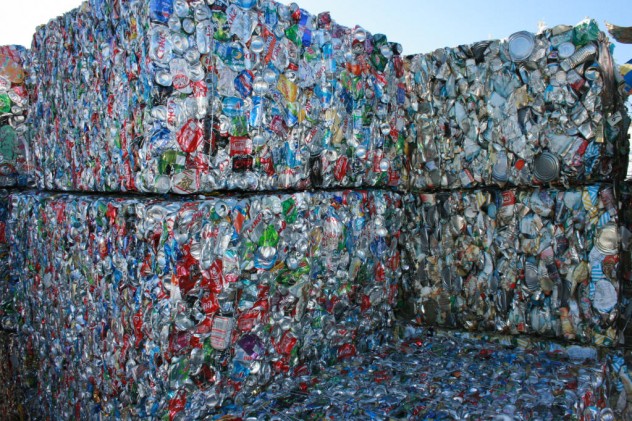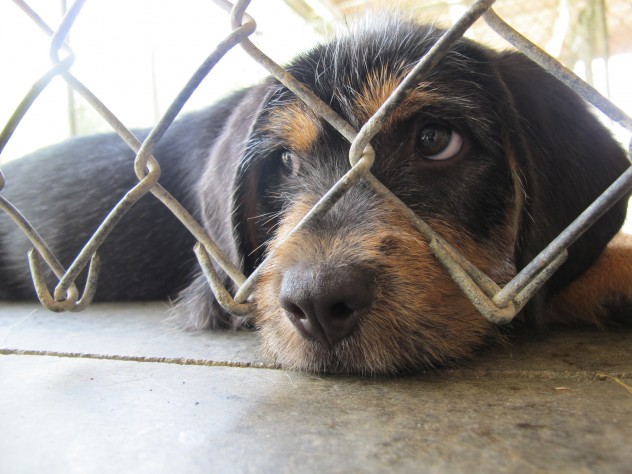 Miscellaneous
Miscellaneous  Miscellaneous
Miscellaneous  Our World
Our World 10 Green Practices That Actually Make a Difference
 Humans
Humans Ten Historic Men Who Deserve Way More Credit Than They Got
 Movies and TV
Movies and TV The 10 Most Heartwarming Moments in Pixar Films
 Travel
Travel Top 10 Religious Architectural Marvels
 Creepy
Creepy 10 Haunted Places in Alabama
 History
History Top 10 Tragic Facts about England’s 9 Days Queen
 Food
Food 10 Weird Foods Inspired by Your Favorite Movies
 Religion
Religion 10 Mind-Blowing Claims and Messages Hidden in the Bible Code
 Facts
Facts 10 Things You Never Knew about the History of Gambling
 Miscellaneous
Miscellaneous Ten Groundbreaking Tattoos with Fascinating Backstories
 Our World
Our World 10 Green Practices That Actually Make a Difference
 Humans
Humans Ten Historic Men Who Deserve Way More Credit Than They Got
Who's Behind Listverse?

Jamie Frater
Head Editor
Jamie founded Listverse due to an insatiable desire to share fascinating, obscure, and bizarre facts. He has been a guest speaker on numerous national radio and television stations and is a five time published author.
More About Us Movies and TV
Movies and TV The 10 Most Heartwarming Moments in Pixar Films
 Travel
Travel Top 10 Religious Architectural Marvels
 Creepy
Creepy 10 Haunted Places in Alabama
 History
History Top 10 Tragic Facts about England’s 9 Days Queen
 Food
Food 10 Weird Foods Inspired by Your Favorite Movies
 Religion
Religion 10 Mind-Blowing Claims and Messages Hidden in the Bible Code
 Facts
Facts 10 Things You Never Knew about the History of Gambling
9 Ways Altruism Is Destroying The World
Altruism is a noble thing. By giving and expecting nothing in return, we promote happiness, help others, and remind ourselves that we’re fundamentally decent people . . . except for the part where we also spread misery, destroy families, and send the world spiraling toward destruction. Yeah, it turns out that the warm, fuzzy glow you get after doing a good deed often comes with unforeseen consequences, such as:
9 Charity Destroys Lives

By its very definition, charity is selfless. Whether it’s dropping a few pennies in a collection box or shipping our old T-shirts off to Africa, a spot of charity is a quick and easy way to net some karma. At least it would be if it didn’t usually harm the very people we’re trying to help.
Take our practice of sending old clothes to Africa. Objectively, it makes sense: People living on under a dollar a day probably don’t have much of a clothing budget, so why not redistribute the stuff we’re not using? In fact, it makes so much sense that millions of us pack and ship off our novelty Christmas jumpers every year—resulting in the complete collapse of the African textile industry. Think about it: If you flood a market with free goods, you’ll bankrupt the traders and manufacturers trying to sell them. And that’s exactly what’s happened here. Across the continent, whole communities have lost their livelihoods in exchange for your old Slayer T-shirts.
And it doesn’t stop with clothing. In Ethiopia, a recent splurge of giving for rural regeneration projects has led to a drop in the infant mortality rate. This is good on the surface, but because of the increase in population, it’s devastating local resources and significantly lowering the quality of life for everyone, pushing yet more people into disease-ridden slums. It’s a vicious cycle, and one that our method of blind giving is doing little to alleviate.
8 Volunteering Causes Poverty

Volunteering seems like a no-brainer. Pay a little cash, get a cheap trip to Cambodia, build an orphanage, and feel the good vibes roll in. They get a nice new facility and you get a bunch of stories to pick up hippie girls with at college. Everyone’s happy . . .
. . . except for the Cambodian laborer whose wage you undercut—the one who could have made a living by building the very orphanage you’re now paying to build. Or the orphans themselves who, after a life of trauma, have just forged an attachment to you, only to see you vanish back off to the States without the slightest hesitation. Or the poor Cambodians who get to watch you weep over their plight as part of your self-fulfillment trip. In fact, the only people likely to be happy are the corrupt individuals who intentionally keep local orphanages in terrible conditions, just so the tourist dollars will keep rolling in. Imagine for a second that your local orphanage allowed tourists to come in and play with vulnerable kids on a rotating basis, without a single background check. As BBC contributor Daniela Papi notes, you’d be mad. So why should it be any different just because these orphans happen to be Cambodian?
7 Organ Donation Can Kill

Volunteering for organ donation is shorthand for showing you think about other people. Each year in the US, 9,000 people die waiting for a transplant, and it’s not like you’ll need your liver in heaven or Jannah or wherever. So by all means, sign up, but for the love of God make sure you’re healthy beforehand, because the hospital sure won’t.
In the early 2000s, organs from a deceased alcoholic were sent to around 40 patients. Within two years, eight recipients had come down with Hepatitis C, a disease you may recognize as one you really don’t want to have. According to the Wall Street Journal this happens more often than we’d like to think. One woman donated a kidney, unaware she was infected with the parasite Strongyloides. The man who received it felt fine for three months, then began vomiting blood and quickly expired. All told, at least 97 serious infections from donated organs were recorded in a 2007 study, with many more thought to go unreported by hospitals. The trouble is that, in their panic to get new organs inside a patient, doctors usually only test for obvious stuff like HIV. So if you’re unwittingly carrying a rare parasite, you’re going to pass it on to whoever gets your kidneys. And what might not harm you can be lethal to others.
6 Environmentalism Harms The Planet

It’s now pretty much irrefutable that our planet is getting hotter. Temperatures are soaring, sea levels are going up, and we’re now comfortably cruising toward an apocalypse of our own making. So it makes sense that you’d want to do something about it. But I’ve got some bad news: Chances are, whatever you’re doing isn’t helping.
Take carbon offsetting. The idea goes that you pay a little extra for your flight, and in return your airline plants a tree or whatever. Sounds good, except for the part where it doesn’t make any sense. See, we in the West produce a lot of emissions—so much so that offsetting them all would require the rest of the world to start producing negative carbon. In other words, offsetting is no help at all, just like recycling. Yeah, sorry to burst your bubble, but recycling has become a global market. That means that suppliers of recycled goods follow the money—even if it involves shipping their produce across the world, at ozone-shredding energy costs. And that’s before we get started on the environmental damage caused by mercury mining for energy-efficient light bulbs. So, to sum up: The planet is doomed and trying to help will only make things worse. Great.
5 Handouts Kill The Homeless

Unless we’re totally psychotic, most of us are aware that no one would be homeless out of choice. So when we see someone begging at the bus station, our first instinct can be to slip them a dollar—a move so unbelievably unhelpful it’s tantamount to kicking them in the face.
See, most homeless people are pretty troubled. They’re combat veterans or mentally ill or just trying to numb the pain of living in an uncaring society. And that usually means one thing: drugs. Not a couple of beers in the evening, not a quick joint while playing Xbox—hardcore, skin-rotting, mind-destroying, life-shattering addictions. That dollar you handed over won’t be spent on a bed for the night or a bite to eat, even if the recipient really is starving. It’s going to fund a painful cycle of addiction, misery, and premature death. By holding onto your dollar, you’re actually doing a good deed, even if it doesn’t feel like it at the time.
4 Minimum Wage, Maximum Poverty

Minimum wage is a noble idea. It stops unscrupulous companies from exploiting the poor and ensures a modicum of dignity for those at the bottom of the pile. Unfortunately, it also creates a poverty trap which can make things far worse for millions.
In Britain, the 1999 introduction of the minimum wage did everything it was intended to. Poverty was reduced, exploitation was reduced, and no jobs were lost as a result. The policy was a resounding success . . . for a decade or so, until problems started to become apparent. The trouble is, legally obliging companies to pay a minimum wage does exactly that: ensures they will pay the strict minimum no matter what the work. A 2013 study found that one in 10 British jobs pays within 50 pounds of the minimum wage, with that number rising to over one in three in certain job sectors. Put simply, the minimum wage created a bottom-heavy labor market, making low pay with no chance of progression a fact of life for millions of people. That’s not to say it failed, only that it created a whole host of new problems for the very people it was meant to protect.
3 Ethical Eating Is Anything But

You’ve probably heard of quinoa. Basically it’s a wonder food found in South America: a grain with a high-protein content that gives your body all the nutrients that meat does and more. For vegetarians and vegans, it’s like God’s way of saying, “You were right.” And our love for it is destroying the lives of thousands of South Americans.
As The Guardian pointed out, a whole bunch of rich Westerners throwing money at a product tends to push up its prices. The result is that the Bolivians who grow the stuff can no longer afford it, while farmers who grow literally anything else are being forced out of the market and into—you guessed it—poverty-ridden slums. But this madness isn’t just limited to meat substitutes. The report also notes how our insane demand for asparagus has caused Peru to become so over-farmed with the stuff that it’s literally draining the countryside dry—depleting water supplies and creating inhuman living conditions for local farmers. Then there’s “fair trade” farming, which operates as a kind of social Darwinism, allowing a small number of third-world landowners to get rich off of Western subsidies while smaller farmers get nothing. That warm, fuzzy feeling you get buying fair trade produce? That’s the combined force of 10,000 Bolivian farmers trying to kill you with willpower alone.
2 “No Kill” Animal Shelters Encourage Torture

“No kill” shelters are where you dump an unwanted pet when you’re cruel enough to throw out a puppy, but not quite cruel enough to have it sent to certain death. They’re the ultimate balm for troubled psyches—a “get out of jail free” card for dads needing to dispose of their kid’s unwanted birthday kitten while still feeling okay with themselves. And they’re about a zillion times crueler than their murderous counterparts.
Let’s start with the basics. If you have a shelter committed to a “no kill” policy, that means the animals have to be rehoused. If you can’t rehouse them, it means you have to keep them. And if more animals that you can’t rehouse keep on coming in, it leads you down a very dark path. PETA reports hundreds of shelters where animals are crowded together in conditions that would make a battery hen shudder: crammed into cages, living in piles of feces, and suffering diseases so awful that killing them would be a mercy. The alternative some of these shelters have is to turn away animals they can’t rehouse. Unfortunately, this usually means the owner dumps them on a roadside, leaving them to starve, or flat out kills them in whatever way they see fit. So while we may shudder at the idea of a shelter putting down its inhabitants, the alternative is one heck of a lot grimmer.
1 Adoption Encourages Human Trafficking

At first glance, international adoption seems like a good thing. Western parents get a kid to raise, and said kid gets taken out of their third-world orphanage and into a world of comfort. Win-win, right? Yep, especially if you happen to be a human trafficker.
It all comes down to supply and demand. Right now, there’s a demand in our culture for third-world orphans—with the result that a horrifying supply chain has grown up to cater to our needs. In Ghana, a 2009 raid on orphanages found that over 90 percent of the children had at least one living parent. In 2007, a French charity called Zoe’s Ark was stopped while attempting to fly 103 “Sudanese war refugees” out of Chad—only for authorities to discover that none of them were Sudanese, none were war refugees, and nearly all of them had been forcibly taken from their parents.
Meanwhile, a whole Ethiopian industry has been created for kidnapping children, smuggling them over borders, and selling them to adoptive parents as foundlings. In short, this isn’t regular corruption, this is human trafficking on an industrial scale—with kids being torn from their families, sold to tourist-oriented orphanages, and denied a proper life—all thanks to our altruistic need to be seen doing “good.”








